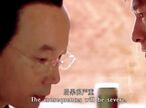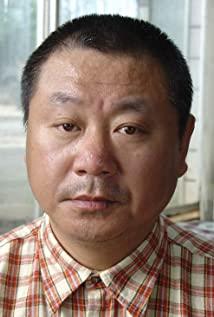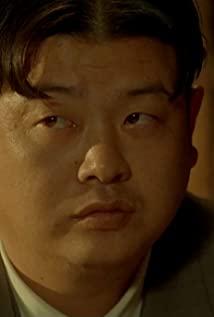The film "A World Without Thieves" brings together actors from Andy Lau, Ge You, Rene Liu, Li Bingbing, Wang Baoqiang, etc. In the fusion of love, comedy, gangsters, comics, police and bandits, ethics, action and other elements, it tells the story of a "guardian". Silly roots, no thieves in the world" ideal story. Feng Xiaogang, who is well versed in the laws of film business and people's preferences, uses humorous and funny techniques to the extreme in the film, but he writes with tears at the tragic ending, revealing his profound humanistic feelings and conscience inquiries.
Driven by the market utilitarianism that is committed to meeting the demands of many parties, the director painstakingly collages and integrates various commercial elements, and finally presents a gorgeous and exciting visual feast to the audience. The portrayal of characters such as Wang Li in the image of the Virgin, Wang Bo, who is ruffian and responsible, the simple and foolish Root, the glamorous and charming Xiaoye, and the ruthless Uncle Li, make this exciting "enemy and self attack and defense" even more thrilling. The interweaving of multiple lines of love, family affection, ethics, and action also leads the presentation and expression of the story to a more diverse interpretation space. The transformation and growth of the roles of Wang Bo and Wang Li make the image of "thief" full of the breath of "chivalry" and the breadth of "love".
The narrative focuses on the confrontation of the three forces in the enclosed space of the train, and the director's overall control is revealed in the fast-paced action editing and the comical intrusion of the "robbery" segment. The insertion of beautiful scenery and the presentation of Feng's phrases are the icing on the cake.
Counting the gathering of gorgeous elements in the film is already splendid, but what actually touches people's hearts is the manifestation of "conscience" at the core of the director's consciousness. "Conscience" is an aesthetic tradition of Chinese film in the course of more than 100 years of history, "its connotation is to focus on the audience and the market first, and secondly, to regard film and television as the art of the times, it must be based on the goodness of human nature, the merits of the world, the heart of the world, and the Defend the social inferiority." (Quoted from Yu Ji's "Chinese Film: The Aesthetic Construction and Biography of "Conscience"). Many details in the film reveal the director's stubbornness in the society, such as Wang Bo driving a BMW to reprimand security guards, which is ineffective, extremely ironic but sharp. The setup of Uncle Li, an organized and disciplined gang of thieves, strengthens the power of the villain, but at the same time buries the worries of the society.
Even the shaping of the role of Silly Root itself incorporates the director's extreme personal idealization, with an almost silly paranoia and stubbornness in stark contrast to this dirty society full of stealing and deception. From the perspective of the entire narrative motivation of the film, it is not so much that Wang Li wants to keep the inner world pure in order to alleviate the sins of her unborn child, it is better that the director wants the audience to cherish the pure and good character in human nature and give it to Protect. This simplicity and innocence is magnified and sublimated in Wang Bo's transformation and eventual death. At the same time, Sha Gen also embodies the audience's desire and nostalgia for the country and family ("mother and son" care, Wang Li and Sha Gen form a mother-son relationship in disguise), so the protection of him has become a kind of current utilitarian society. A powerful backlash against moral disorientation.
The introduction of religiousness is also an aspect of redemption in the quest to call upon "conscience." Whether it is the depiction of Wang Li's devout worship of Buddha, the repeated appearance of the pestle to conquer the devil, or the long-cherished wish of "accumulating virtue for children", they all reveal a strong religious infiltration influence. When Wang Li's motherhood and religious divinity merged, the original worldliness and sins were washed and removed, and she turned to the difficult road of self-redemption. For Wang Li and Sha Gen, they not only regard each other as relatives, but also as the existence of gods (Wang Li said that Sha Gen is not a mortal, while Sha Gen thinks she is a Bodhisattva). This kind of special emotional intersection leads to an emotional infection that touches the heart and soul in the storytelling, and allows the audience to accept the "truth, goodness and beauty" character that seems to have religious origins while agreeing with the emotions of the two.
Throughout Feng Xiaogang's films, this kind of "conscience" feeling has always run through, whether it is the perspective of the little people in "Party A and Party B", "Endless", "See You Never Die", or the "Misery Trilogy" "Tangshan". The major events of "The Great Earthquake", "Assembly", and "1942" all embody the director's attention and warning to the people of the world and social problems. The presentation of the film "A World Without Thieves" undoubtedly incorporates profound humanistic care into the delicate business narrative, calling for a pure and harmonious world without thieves with the attitude of "conscience".
View more about Tian xia wu zei reviews











